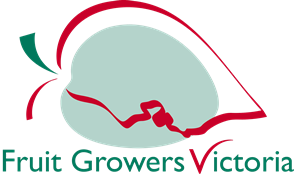Please see below the article by FGVL's, Tony Filippi, that was published in the Primary Industries and Regions SA Integrated fruit fly pest management guide for South Australian fruit and vegetable growers.
WHEN FRUIT FLY TAKES HOLD THE CONSEQUENCES ARE DEVASTATING
Victoria’s Goulburn Valley Once fruit fly free, now the focus of area-wide pest management.
________________________________________________
“Fruit fly management on farm now brings an extra cost to the grower, but if it is not managed then the cost is even greater due to direct production loss. To remain viable they need to adapt modern management techniques and co-ordinate their efforts to clean the pest up.” - Tony Filippi, Senior Industry Development Officer, Fruit Growers Victoria.
The Goulburn Valley surrounds the Shepparton area in northern Victoria. The region’s horticulture industry contributes some $485 million to the State’s economy and has underpinned the growth and social fabric of the region.
Goulburn Valley produces a wide selection of fresh, ready to eat and/or processed fruit. Crops grown include apples, apricots, peaches, pears, plums, nectarines, nashi, kiwi fruit, oranges, lemons, limes, tomatoes and cherries.
In 1994, the Goulburn Valley was deemed a part of a Fruit Fly Exclusion Zone (FFEZ) that also included the greater Sunraysia, Riverina and Riverland districts. Actions within this zone aim to prevent fruit fly incursion and and assist trade with sensitive markets.
Victoria delivered coordinated Statewide pest response and surveillance programs across all horticultural production and urban areas. However, despite management efforts, Queensland fruit fly has become widely established in the Goulburn Valley.
In 2011 , there were fruit fly outbreaks of unprecedented severity throughout Victoria. The State’s (then) Department of Environment and Primary Industries determined that eradication was no longer financially or technically viable. Goulburn Valley’s fruit-fly-free status was removed in April 2013 and the area is no longer managed as a Pest Free Area.
The Riverland has maintained its fruit-fly-free status but in the Goulburn Valley, fruit fly management is now a necessary incorporated cultural practice for the many commercial fruit and vegetable growers.
Businesses have had to adapt to survive fruit fly. There are ways of dealing with fruit fly for many of the horticultural industries, but they all involve time-consuming and costly measures including the following:
- surveillance of fly traps
- checking fruit for signs of fruit fly stings/infestation
- protein bait sprays or other female attractants
- cover spraying
- soil drenches
- orchard hygiene
- use of ‘male annihilation technique’ (blocks or cups are impregnated with chemicals that lure and kill male flies; these are hung in trees)
- mass trapping (lures are used to trap or drown flies).
Even with these measures, the quality of fruit is sometimes affected by treatments and due to lack of recognition market access is restricted.
Now Industry groups and the Victorian and Federal government require a coordinated approach. Industry groups, such as Fruit Growers Victoria have had to actively coordinate and participate in stakeholder meetings to build awareness for Queensland Fruit Fly. With the assistance of key departmental staff, they now aim to devise a management protocol structure where industry can manage the pest with government support.

